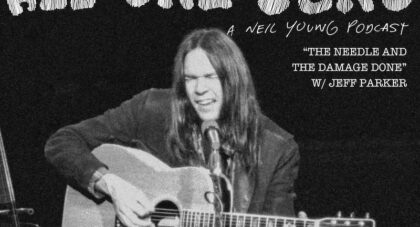Few songwriters have the gift that Jim White has. Channeling the strange and weird side of life into song-stories that are as compelling and moving as they are sometimes disturbing, Jim has helped push the Southern-gothic genre into music and back out into the limelight. His latest album, Transnormal Skiperoo, is a continuation and expansion on his familiar themes.
Earlier this month, in coordination with Aquarium Drunkard, Jim took time out of his current tour to stop at Northeast Guilford High School outside Greensboro, North Carolina, to talk with some creative writing students . . .
Only the good shit. Aquarium Drunkard is powered by its patrons. Keep the servers humming and help us continue doing it by pledging your support.
To continue reading, become a member or log in.


